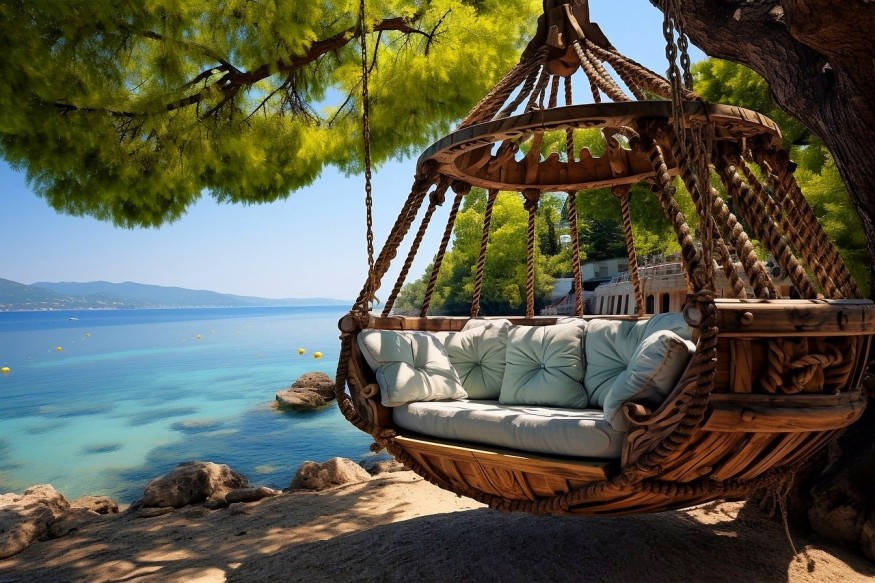Hotels are incorporating innovative sleep technologies like smart beds, sound waves, and CBD therapies to meet the growing demand for quality sleep experiences among travelers. This reflects the emergence of sleep tourism, where individuals prioritize rest and relaxation over traditional action-packed or adventurous getaways.

Sleep Tourism Explained
Sleep tourists seek unique and luxurious accommodations, ranging from high-end hotels to picturesque campsites, to specifically enjoy the experience of sleeping in tranquil and exotic locations.
Sleep tourism, also known as a sleep vacation, is a rising travel trend driven by the desire to disconnect from hectic daily routines and the constant pressure to be productive even while on holiday. In the contemporary, stress-filled world, people are increasingly seeking opportunities to escape the chaos of their lives.
This trend aligns with a broader movement toward enhanced health and well-being, incorporating alternative therapies like CBD, herbal remedies, yoga, meditation, and sound healing.
The appeal of sleep tourism lies in its promise to provide unique and restorative sleeping experiences, catering to individuals looking for tranquility and rejuvenation. The incorporation of evolving technologies, such as AI mattresses and room controls, allows hotels to offer more comprehensive services to their guests.
While alternative therapies and sleep aids are valuable, it's essential to recognize the broader impact of daily habits, stress levels, and sleep-wake patterns on overall sleep quality.
Kate Mikhail, author of "Teach Yourself to Sleep," emphasizes that holistic strategies are crucial for achieving better sleep. Although practices like aromatherapy mists can contribute to a relaxing environment, hotels play a pivotal role in prioritizing rest and educating guests on healthy sleep habits.
The success of these efforts remains to be seen, but they reflect a growing awareness of the importance of quality sleep in promoting overall well-being.
READ ALSO : Can Humans Survive Without Sleep? Here's What Happens to Those Who Always Stay Awake Past Their Bedtime
Health Benefits of Sleep Tourism
Sleep tourism provides a significant benefit by allowing travelers to unwind, fully engage with local culture, and recharge after the exhaustion of exploration, leading to improved mood and a more immersive travel experience.
Opting for an outdoor destination in sleep tourism enhances overall wellbeing, supported by research indicating quality sleep outdoors positively affects brain and body functions, balances internal clocks, relieves stress, and boosts immunity. Below are some of the specific health benefits of sleep tourism:
- Enhanced brain and body functions result from exposure to fresh air, with increased oxygen improving cognitive abilities, concentration, and aiding muscle recovery after physical training.
- Natural sunlight promotes a balanced internal clock, regulating melatonin levels crucial for sleep, wakefulness, body temperature, blood pressure, and glucose levels.
- Visual and auditory cues from nature, such as tree views and outdoor sounds, provide stress relief, proven by studies. Additionally, ambient sleep sounds mimicking nature contribute to faster sleep onset.
- Immunity receives a boost from outdoor activities, particularly forest walks, increasing white blood cell levels and anticancer proteins. Research suggests that a daily 2-hour forest walk reduces blood pressure, pulse rates, and cortisol (stress hormone) levels, contributing to an improved immune system.
RELATED ARTICLE: What Is Scandinavian Sleep Method? Benefits, Drawbacks Explained
Check out more news and information on Sleep in Science Times.
© 2025 ScienceTimes.com All rights reserved. Do not reproduce without permission. The window to the world of Science Times.












